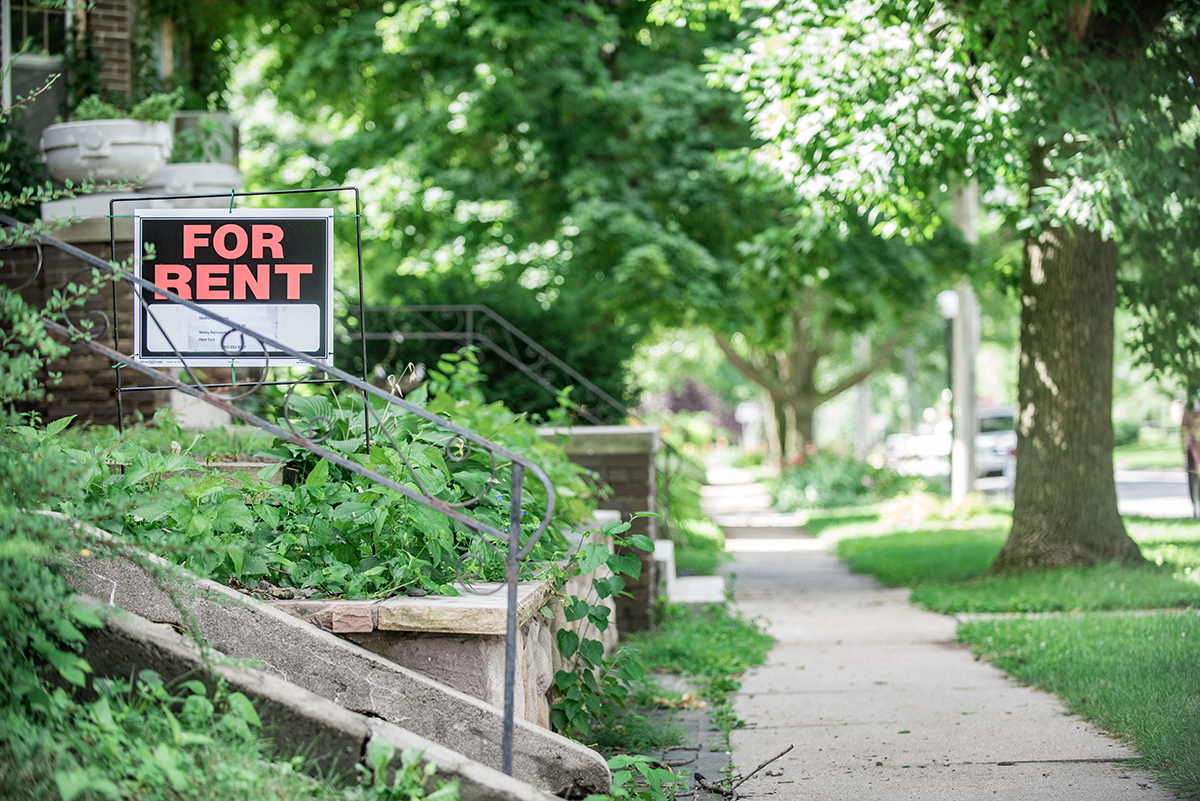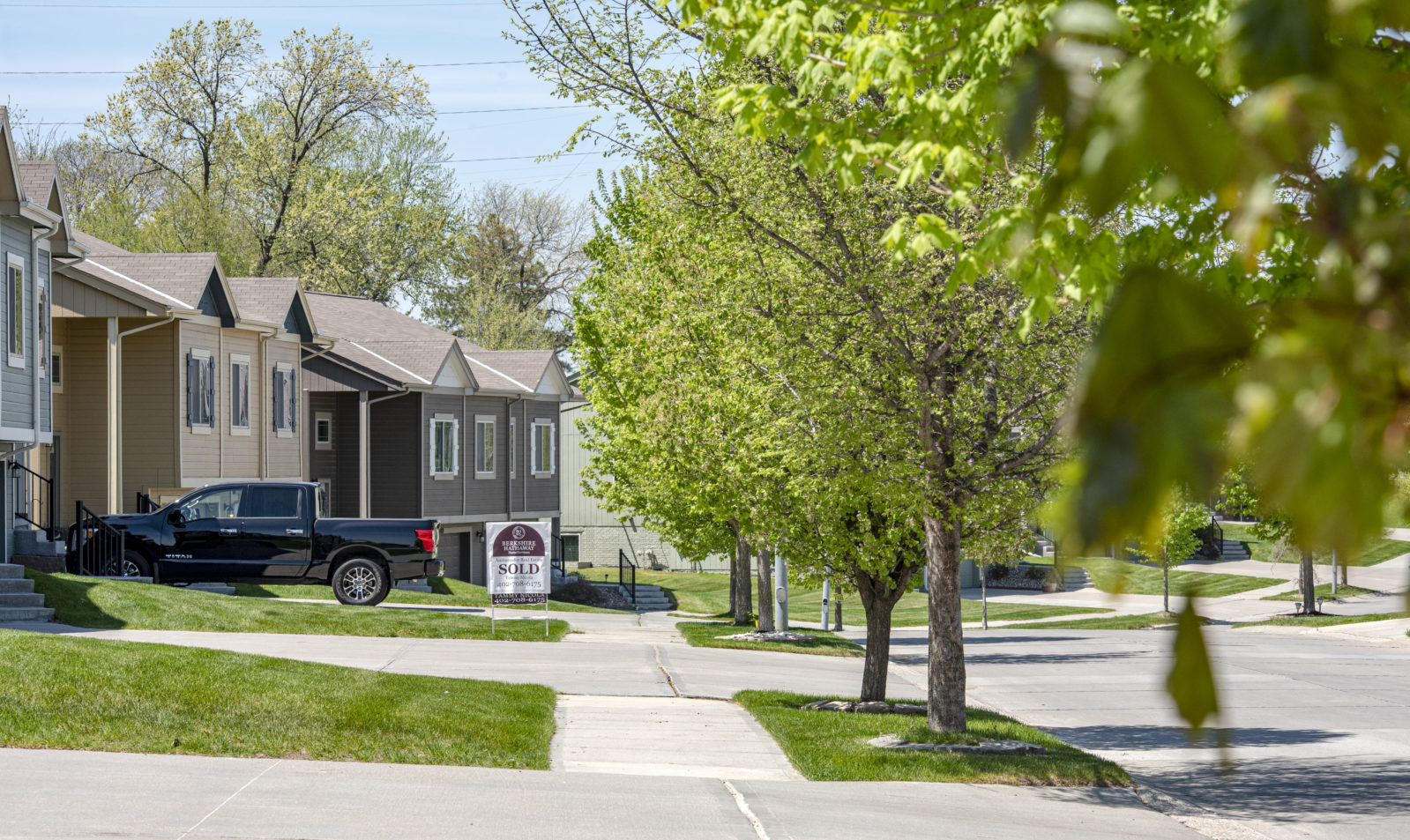A lack of access to affordable housing has been one of our community’s larger longstanding issues. It’s only been exacerbated by the pandemic.
Housing is one of the five focus areas of the Community Resilience Fund, which the Omaha Community Foundation launched in April 2021. The first round of funding was recently announced. Those who wish to contribute to the Community Resilience Fund can donate here.
Local nonprofits who work in housing say that renters need protection and support now, more than ever — and that the region needs more investments into housing infrastructure and inventory.
Renters At-Risk During COVID-19
Over the last year, many renters have fallen behind on their rent due to financial hardships caused by job loss or illness. Thankfully, emergency rental assistance funding is currently available for tenants who are behind on rent because of the pandemic. In Omaha alone, a local organization, MACCH, has partnered with the city to help people to get millions of dollars of rental assistance.
“All of this assistance from the latest round of relief money is greater than the CARES Act,” said Scott Mertz, a managing attorney with Legal Aid of Nebraska. “But you have to know about it and take certain steps to get it. That can be intimidating for people who don’t have the tech-savvy to access those resources.”
As of now, the CDC has issued a federal moratorium on evictions until June 30, 2021, which helped reduce evictions in Nebraska by nearly half in 2020. Eviction protection is a great support for tenants who have been financially impacted by the pandemic and one that Mertz hopes to see extended beyond June.
Despite federal protection, many local residents still lost their homes last year, including at least 60 people who should have been protected by the law.
The problem, Mertz said, is that “people don’t know what the CDC protection means for them. Some people have a vague idea that something is being done and no evictions are happening, thus anything I hear about eviction from my landlord doesn’t matter. But that’s not true. You have to fit the qualifications and take affirmative steps to use those protective measures. That’s where talking to an attorney comes into play.”
A Large & Growing Affordability Gap
Before COVID-19, it was already tough for people to find quality affordable housing at all levels of income. Conventional wisdom says you shouldn’t spend more than 30% of your income on housing. But that’s long overdue for reassessment, according to Jamie Berglund, executive director of Spark CDI.
“Paying 30% on housing is a real stressor for lower-income families and puts people in constant crisis mode. They can’t forecast long-term. They’re just thinking about making rent next week. COVID has just put a magnifying glass on this issue,” Berglund said.
She also shared that the public’s idea of this region’s quality of life is not based on reality.
“There is a perception that Omaha is super affordable, that we have a low cost of living, but what we don’t talk about enough are the low wages that many people live on and therefore can only afford sub-standard housing,” Berglund said.
The affordability gap in Omaha and Council Bluffs is large and growing. Studies show that 45% of local renters regularly spend 30% or more of their income on housing.
“Paying 30% on housing is a real stressor for lower-income families and puts people in constant crisis mode.”
Another trend Berglund is seeing is that many moderate- and higher-income residents have absorbed the moderate-priced housing inventory and created more pressure on the housing market for those who can’t afford to pay 30 percent of their income on housing.
“So because some mid- to high-income households don’t want to spend 30% on housing, low- to moderate-income households have to spend more than 30% on housing,” Berglund said.
With a high cost of living, those in lower-income brackets might be able to cover their basic expenses and little else.
An Insufficient Housing Ecosystem
The existing ecosystem is not robust enough to meet the housing needs of the region. In addition to limited inventory available to renters or buyers in the middle-income range, there are limited types of housing available locally.
A recent regional housing study completed by a collaborative of nine local organizations found that the Omaha-Council Bluffs area simply does not have enough quality affordable housing to meet the need. The consequences for the region are significant:
- Families face housing insecurity.
- Community members face physical and mental health issues caused by poor-quality housing.
- Children are not in a position to reach their full potential.
- Economic growth and vitality are constrained.
These issues exacerbate racial inequity caused by decades of housing and development policy, such as redlining.
“We kind of have two options: You can live in a single-family detached home or a large multifamily housing complex,” Berglund said. “We need to be more open to a whole array of living situations that can be retrofitted into existing neighborhoods and are more accommodating to a diverse number of lifestyles and household sizes.”
According to Berglund, we have yet to tap into some of the more creative ways that other regions are solving their housing issues.
“I’d like to see us focusing on offering more ownership resources locally, including things like co-ops, land trusts, shared equity models, and other ways to make housing more affordable,” she said.
Protection & Assistance for Renters
The same regional housing report found that helping renters avoid eviction by connecting them to legal counsel, rental assistance, and other needed services is a cost-effective strategy for improving household stability and wellbeing. But renters aren’t always aware of the resources available to them.
“We are at the courthouse seeing people being evicted, but by law, we can’t volunteer our services to them.”
Nebraska law skews toward landlord rights and Mertz believes the state is in need of stronger legal protections for tenants. Currently, a law does not exist that gives tenants the right to counsel for eviction cases. Mertz said there should be one.
“That’s where we try to fill the gaps,” he said. “We want everyone to have access to legal counsel.”
Legal Aid of Nebraska is the only state-wide agency that offers free civil legal services and serves as a valuable resource to tenants facing eviction. Mertz wishes more people knew about Legal Aid’s free legal services. They advertise their services to the public, but laws against solicitation limit the organization’s reach.
“We go to court with our clients, and while we’re there, we see people who could use our services and just don’t know it,” Mertz said. “So we are at the courthouse seeing people being evicted, but by law, we can’t volunteer our services to them.”
Give to the Community Resilience Fund
We invite you to learn more about the Community Resilience Fund and support the ongoing work of nonprofits to meet local housing needs caused and exacerbated by the COVID-19 pandemic.
Learn About the Local Housing Landscape

